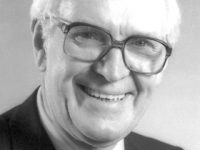John Jacob Abel and the Endocrine Glands
On May 19, 1857, American biochemist and pharmacologist John Jacob Abel was born. Abel made important contributions to a modern understanding of the ductless, or endocrine, glands. He extracted a derivative of epinephrine, also known as adrenaline and successfully purified and isolated crystalline insulin. His interest in kidney functions led to his invention of a primitive artificial kidney that was able to remove toxins from the blood of living animals, the precursor…
Read more






